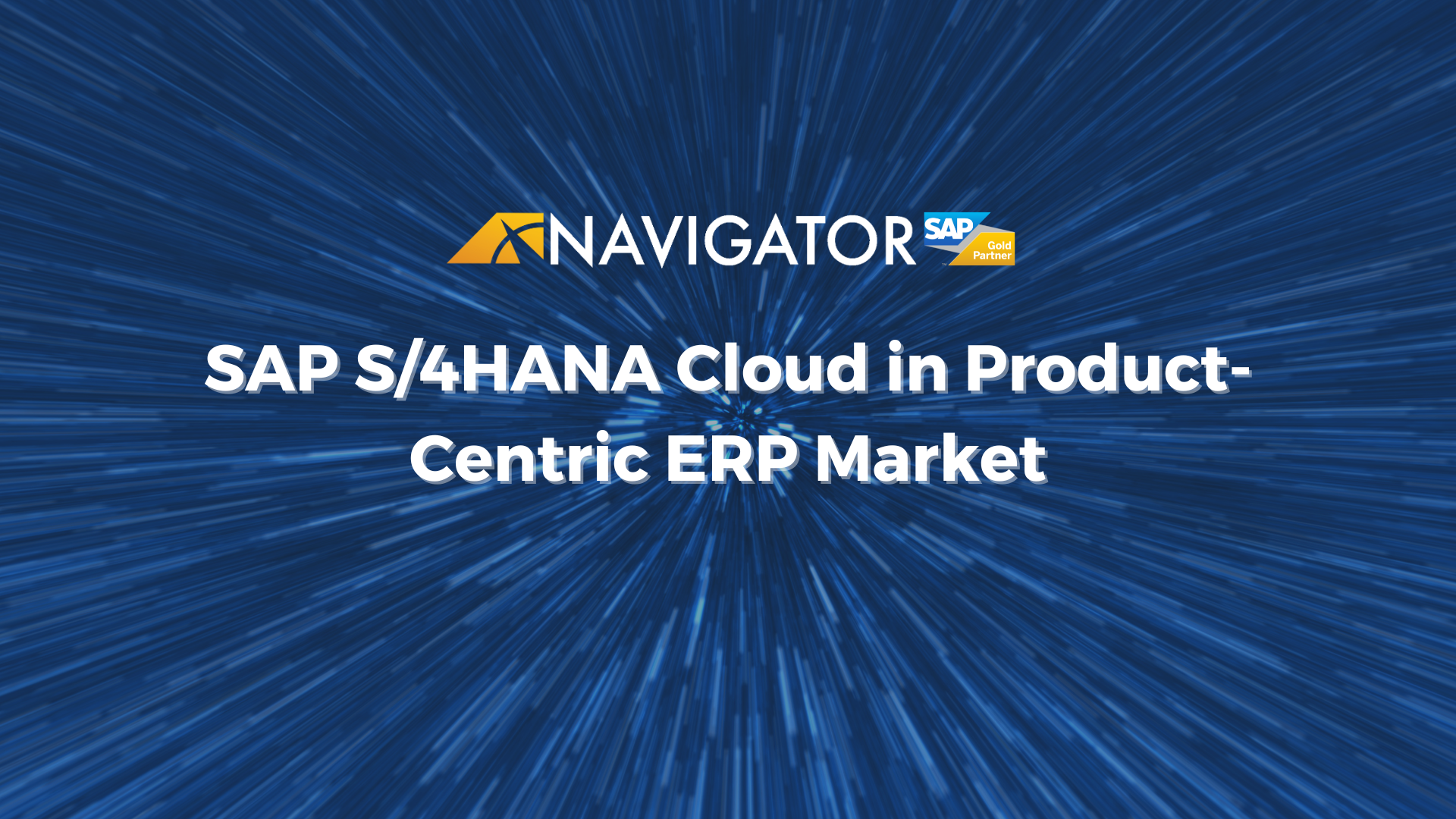
SAP S/4HANA Cloud in the Product-Centric ERP Market
SAP S/4HANA Cloud Public Edition is positioned as a Leader in the Magic Quadrant for Cloud ERP for Product-Centric Enterprises. With a focus on midmarket and large enterprises, the solution is designed to support essential manufacturing, supply chain, and financial processes, making it a strong choice for organizations aiming to modernize operations and adopt composable ERP strategies.
Key Strengths of SAP S/4HANA Cloud for Product-Centric Enterprises
Comprehensive ERP Capabilities:
- Offers a robust suite of product-centric capabilities, including supply chain planning, manufacturing, warehousing, and sustainability reporting through tools like the SAP Sustainability Control Tower.
- Embedded AI and machine learning (ML) features enhance automation, predictive analytics, and process optimization.
Innovative Product Roadmap:
- Future enhancements include predictive replenishment for retail, automated trade claims for consumer products, and AI-driven production order handling and quality management.
- Early adoption of the Joule AI assistant provides conversational navigation and predictive insights.
Global Reach and Ecosystem:
- Supported by SAP’s extensive partner ecosystem, which includes consulting, integration, and implementation partners worldwide.
- Tailored solutions for industries like wholesale distribution, consumer products, and high tech.
SAP S/4HANA Cloud Public Edition is positioned as a Leader in the Magic Quadrant for Cloud ERP for Product-Centric Enterprises. With a focus on midmarket and large enterprises, the solution is designed to support essential manufacturing, supply chain, and financial processes, making it a strong choice for organizations aiming to modernize operations and adopt composable ERP strategies.
Key Strengths of SAP S/4HANA Cloud
-
Comprehensive ERP Capabilities:
- Offers a robust suite of product-centric capabilities, including supply chain planning, manufacturing, warehousing, and sustainability reporting through tools like the SAP Sustainability Control Tower.
- Embedded AI and machine learning (ML) features enhance automation, predictive analytics, and process optimization.
-
Innovative Product Roadmap:
- Future enhancements include predictive replenishment for retail, automated trade claims for consumer products, and AI-driven production order handling and quality management.
- Early adoption of the Joule AI assistant provides conversational navigation and predictive insights.
-
Global Reach and Ecosystem:
- Supported by SAP’s extensive partner ecosystem, which includes consulting, integration, and implementation partners worldwide.
- Tailored solutions for industries like wholesale distribution, consumer products, and high tech.
Challenges and Considerations
-
Complexity in Portfolio Selection:
- Organizations must navigate between SAP S/4HANA Cloud Public Edition, Private Edition, and other SAP solutions to determine the best fit for their requirements.
-
Pricing Transparency:
- SAP’s bundled pricing strategy can complicate cost comparisons and business case development. Prospective buyers should seek detailed breakdowns during negotiations.
-
Dependence on Line-of-Business (LOB) Solutions:
- Additional capabilities, such as HR (via SuccessFactors) or analytics (via SAP Analytics Cloud), are not embedded but offered as complementary solutions.
Competitive Landscape
While SAP S/4HANA Cloud is a Leader, other key vendors provide competitive alternatives, each with unique strengths and cautions:
-
Oracle Fusion Cloud ERP:
- Strengths: Comprehensive sustainability features, AI-driven operational insights, and broad support for complex corporate environments.
- Challenges: Gaps in vertical-specific capabilities and slower service response times compared to peers.
-
Microsoft Dynamics 365:
- Strengths: Robust AI and GenAI capabilities through Copilot, seamless integration with Microsoft productivity tools, and strong Power Platform extensibility.
- Challenges: Limited end-to-end capabilities for complex manufacturing environments and dependency on ISV partners for vertical solutions.
-
Infor CloudSuite:
- Strengths: Deep industry-specific capabilities across manufacturing and distribution, strong role-based visualizations, and prebuilt process configurations.
- Challenges: Complexity in selecting the right ERP solution from multiple options and limited global partner support for all offerings.
-
Epicor:
- Strengths: Tailored solutions for midsize manufacturing, AI-driven predictive tools, and robust integration platforms.
- Challenges: Limited sustainability features and absence of a third-party app store for extended functionalities.
SAP S/4HANA Cloud is a robust and future-ready ERP solution for product-centric enterprises. Its comprehensive capabilities, innovation roadmap, and global ecosystem make it a top choice for organizations aiming to modernize their operations.
Download the full report here at sap.com.

